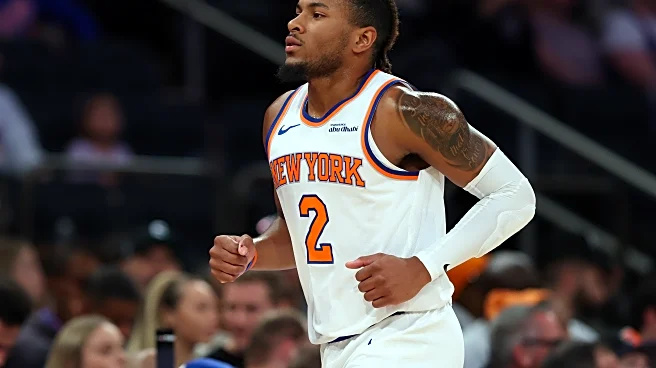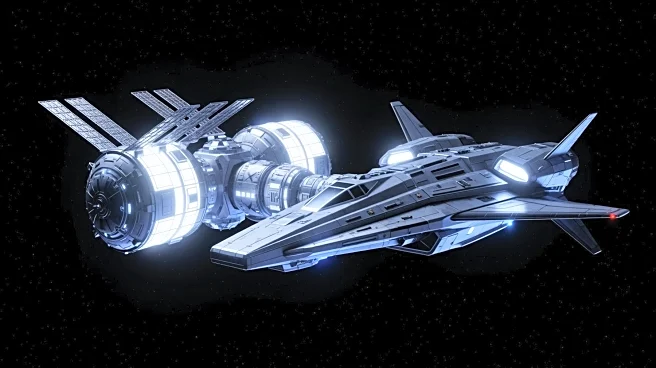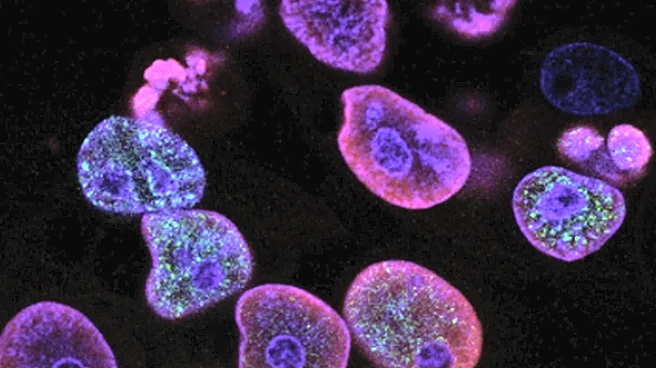There are many different archetypes of NBA players.
There are, of course, differences between superstars, stars, starters, role players, and benchwarmers. There are stylistic differences, whether you’re a distributor, shooter, or defender. There’s the glue guys, 3-and-Ds, and rim protectors.
There’s also a key distinction of knowing your role. For many players, they see themselves as more of a focal point when a role player better suits them. The shot selections of guys like Jordan Poole, Cam Thomas,
and Jordan Clarkson are players who try to be more than they can be. There’s value in being fine with who you are and thriving in the role.
That’s what the Knicks have in Deuce McBride, a spot-up shooter and excellent point-of-attack defender. They know, and he knows, he’ll never be the dynamo Immanuel Quickley was off the bench as a ballhandler and distributor, but that’s okay. For the salary he makes and the importance of having players in his archetype, that’s totally acceptable.
Ideally, you wouldn’t see a significant drop off in multiple areas when a role player misses time, but that’s unfortunately what happened to the Knicks. After two triumphant wins against the Cavaliers and Celtics, McBride had to leave the team due to personal reasons. That, coupled with the continued absence of Mitchell Robinson and eventual absence of Guerschon Yabusele, saw two demoralizing defeats that send the Knicks into their Halloween NBA Cup clash with the undefeated Bulls.
McBride brings two major aspects that make him invaluable to the Knicks. On a roster full of guys who play specific roles, he’s one of the only ones who provides the defense and shooting ability that he has. Only he and Landry Shamet can be volume shooters in the Mike Brown offense, and on a team with Jalen Brunson and Tyler Kolek playing point guard, he’s the team’s most capable defender on small guards.
On the defensive end, the Knicks are coming off a pair of games where Norman Powell and Ryan Rollins lit them up at all three levels. While it would be disingenuous to say either of these two could’ve been shut down, the defensive coverage on both was substandard, something that McBride could’ve improved.
When McBride isn’t on the floor, Mikal Bridges is tasked with guarding the lead guard scorer, but he often struggles in plays like these. While Bridges is a good screen navigator, those off-ball screens are harder for players like him to get through. You can’t see the start of the play, but he’s more than a step behind Powell off the jump.
To be fair, however, the Heat are a bad matchup for Bridges on defense because of Bam Adebayo. His screening is notoriously bordering on offensive fouls, and there were many of these plays where Powell got a step around the screen, got downhill, and drew a foul underneath.
Compare this to how McBride guarded the likes of Payton Pritchard and Donovan Mitchell in the first two games:
McBride had a number of good possessions guarding Mitchell, although he didn’t do it on his own. He switched onto Mitchell after a screen by Evan Mobley and played physical defense to prevent the dynamic guard from getting to his spot.
McBride’s motor also frustrated Lonzo Ball for much of the game, never letting him get into a groove.
If you can navigate a lead scorer into the help, but remain on him to the point that Towns does not have to overexert, good things happen.
His best play of the day came when the Cavs entered desperation mode and McBride snatched the ball from Mitchell to set up a fastbreak layup for Clarkson, bumping the lead to 12 with under nine minutes to go.
This is textbook. Pritchard repeatedly tries to bait McBride into overcommitting one way or another, but McBride stays on his hip to prevent a backdoor or an open triple, preventing Pritchard from blowing by him long enough for Towns to swat it off the glass.
The biggest weakness of McBride on the defensive end is one that’s out of his control. He’s not a big dude, so he’s limited to guarding people his size. He can make up for this, at times, with sheer effort and drive. A bizarre 2-on-1 by the Celtics let McBride sprint back in to smother this shot from Anfernee Simons.
While the defense is a big part of the Deuce experience, it’s not the one that the Knicks are missing the most. Aside from the second quarter in Milwaukee, the Knicks shot 20-for-84 from deep in their two losses. That’s a ridiculously pitiful 23.8% from a team whose only below-average shooter taking jumpers is Josh Hart.
While McBride has been erratic at times throughout his career, he’s one of the team’s best shooters and has the best chance to take advantage of Mike Brown’s offense.
While he shot just 2-for-9 from deep against the Celtics, he hit big shot after big shot against Cleveland, with several of them being huge momentum swings.
Cleveland had gone on a 16-2 run to cut a 15-point lead to just one in the second quarter, but McBride’s three here off the handoff gave the Knicks the boost they needed to finish the half strong.
In the third, the exact same thing. Bridges sets up McBride for a big three after a prolonged Cavs run cut a double-digit deficit to just one.
The biggest reason I think McBride might benefit the most from Brown’s scheme is that you see a lot of this. Drawing double teams in the paint while off-ball movement generates a wide-open look. This shot forced a timeout, capping an 8-0 run after Cleveland went up two early in the fourth.
It’s not just the film that shows his impact; it’s the numbers. No rotation regular has a net rating higher than OG Anunoby’s plus-6.9… except McBride (plus-16.9). The lineup of him and the four established starters has a net rating of plus-12.8 in 18 minutes. While the offense has struggled, they’ve dominated to a 100.0 defensive rating despite having Brunson and Towns be negative defenders.
McBride will return tonight against the Bulls, and they sorely missed him. The Knicks need guys who can hound opposing guards (although Coby White is out tonight) and knock down open shots. He can provide both in spades.















